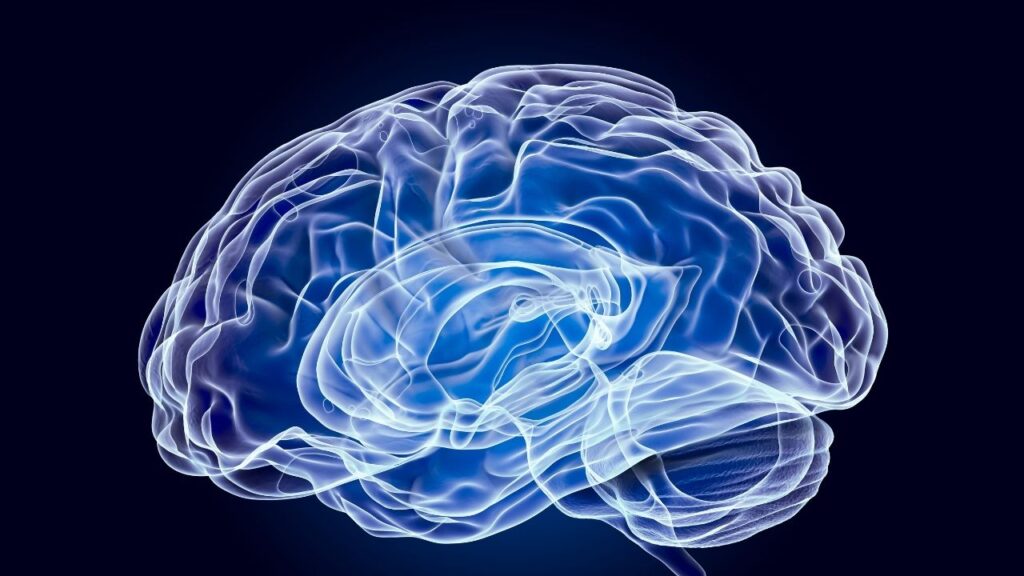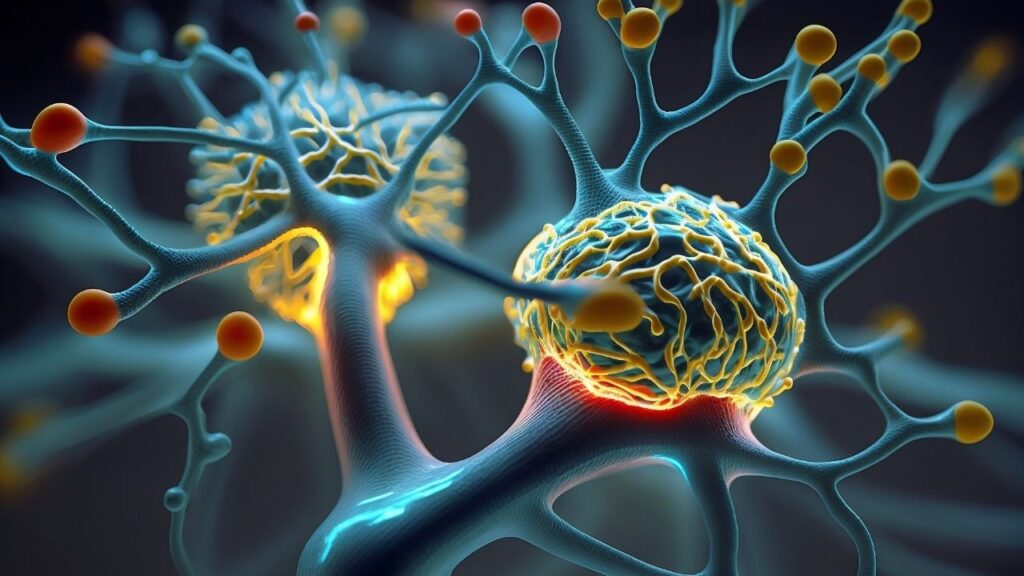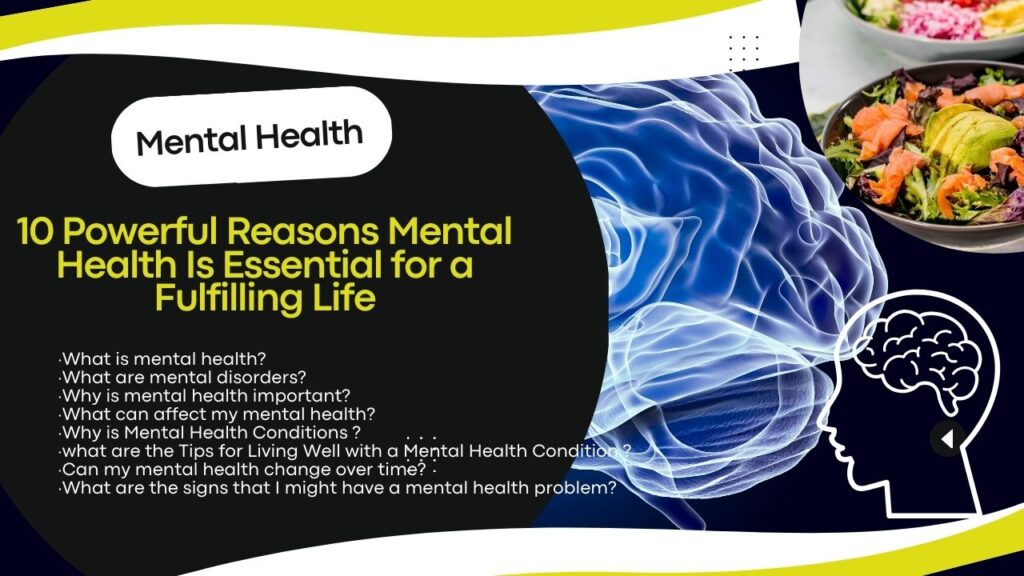mental health
Over View
- What is Mental wellness?
- What are mental disorders?
- Why is mental health important?
- What can affect my mental health?
- Why is Mental Health Conditions ?
- what are the Tips for Living Well with a Mental wellness Condition ?
- Can my mental health change over time?
- What are the signs that I might have a mental health problem?
- What should I do if I think I have a Mental wellnessh problem?
Mental health is the cornerstone of a balanced and satisfying life. It includes mental, emotional, and social well-being, empowering people to effectively manage stress, make deliberate choices, and cultivate deep connections. Making Mental wellnessa priority is about more than simply avoiding disease; it’s about thriving in all facets of life. Understanding how important the topic of mental health might have a major effect on social ties and personal development.
What Is Mental Health?
When people are in good mental health, they are able to manage life’s obstacles, work efficiently, and give back to their communities. Social harmony, psychological fortitude, and emotional equilibrium are all involved. Experiences, surroundings, and genetics all have an impact on Mental wellness. Fostering well-being needs a knowledge of the spectrum of mental health.
What Are Mental Disorders?
Mental disarranges, moreover alluded to as mental ailments, meddled with behavior, feeling, or thought forms. These disarranges, which extend in seriousness and have a noteworthy affect on day-to-day working, incorporate misery, uneasiness, bipolar clutter, and PTSD. The great news is that social systems, pharmaceutical, and treatment can all be utilized to treat mental sicknesses.
Why Is Mental Health Important?
The importance of mental wellbeing lies in its profound affect on each feature of life. Here are ten compelling reasons mental wellbeing is crucial:

1. Adapt With Stretch Viably:
Mental wellbeing equips people to handle push positively, cultivating passionate soundness.
2. Construct Solid Connections:
Enthusiastic versatility supports significant associations with others, upgrading social bolster.
3. Boost Efficiency:
Great mental wellbeing hones center and decision-making, driving individual and proficient victory.
4. Move forward Physical Wellbeing:
Destitute mental wellbeing frequently shows physically, such as weakness or persistent torment. A solid intellect advances a solid body.
5. Accomplish Life Objectives:
Mental clarity and versatility engage people to seek after and fulfill their dreams.
Ignoring mental wellbeing can lead to diminished quality of life and strained connections, underscoring its urgent part in by and large well-being.
What Can Affect Mental Health?
A number of factors, isolated into organic, mental, and social impacts, influence mental wellbeing:
1. Organic Components:
– Neurological clutters and hereditary qualities.
Constant sicknesses and hormonal variations from the norm.
2. Mental Components:
– Enthusiastic disregard or childhood injury.
Identity qualities such as powerlessness or flexibility.
3. Natural and Social Variables:
– Need of back or social confinement.
Stressors incorporate things like preference, cash issues, or perilous environment.
Recognizing these variables helps within the early discovery and treatment of mental wellbeing issues.
Why Are Mental Health Challenges Increasing?

Worldwide emergencies, societal shifts, and the requests of cutting edge living are all contributing to an increment in mental wellbeing issues. Among the most causes are:
1. More noteworthy Mindfulness:
Developing mindfulness of Mental wellness issues persuades individuals to induce treatment.
2. Way of life Push:
Urbanization, competitive settings, and social media all contribute to increased stretch and anxiety.
3. World Occasions:
Climate crises and pandemics cause a awesome deal of uneasiness and uncertainty.
4. Imbalances:
Financial inequality and confined access to healthcare make mental wellbeing conditions more regrettable.
Systemic solutions and societal exertion are needed to address these issues.
Promoting Mental Health and Well-Being
Fostering Mental wellnessinvolves proactive steps:
1. Prioritize Self-Care:
Customary work out, solid eating, and adequate rest advance mental wellbeing.
2. Reinforce Connections:
Construct a steady arrange of family and companions.
3. Look for Professional Offer assistance:
Therapy and counseling can address concerns viably.
4. Advocate for Awareness:
Teach others around mental wellbeing to reduce stigma.
5. Make Steady Situations:
Inclusive working environments and communities improve mental well-being.
Tips for Living Well With Mental wellness Conditions
1. Follow a Treatment Plan: Adhere to prescribed therapies and medications.
2. Practice Stress Management: Mindfulness and meditation alleviate stress.
3. Stay Physically Active: Exercise boosts mood and reduces symptoms of anxiety and depression.
4. Maintain a Routine: Consistency offers structure and control.
5. Join Support Groups. Shared experiences foster understanding and encouragement.
Can Mental Health Change Over Time?

Yes, mental wellbeing is energetic and vacillates with life occasions, age, and circumstances. Positive changes emerge from treatment, strong connections, and individual development, whereas stretch or injury can contrarily affect mental wellbeing. Routinely checking mental wellbeing guarantees opportune intercession.
Signs You May Have a Mental Health Problem
Recognizing signs early helps address issues effectively. Watch for:
1. Persistent sadness or low mood.
2. Excessive anxiety or fear.
3. Changes in sleep or appetite.
4. Difficulty concentrating or decision-making.
5. Withdrawal from social activities.
6. Physical symptoms like fatigue or headaches.
What Should You Do If You Suspect a Mental Health Problem?
1. Speak Up: Share your feelings with trusted friends or family.
2. Seek Professional Help: A therapist or psychiatrist can provide diagnosis and treatment.
3. Educate Yourself: Understand Mental wellness to explore your options.
4. Take Action: Build a support system and follow professional advice to improve your mental well-being.
Mental health is the foundation of a fulfilling life, affecting each angle of our well-being. Prioritizing mental wellbeing enables people to overcome challenges, sustain significant connections, and accomplish individual development. By cultivating mindfulness, looking for bolster, and building strength, ready to make a society where mental well-being flourishes and each person has the opportunity to prosper.
